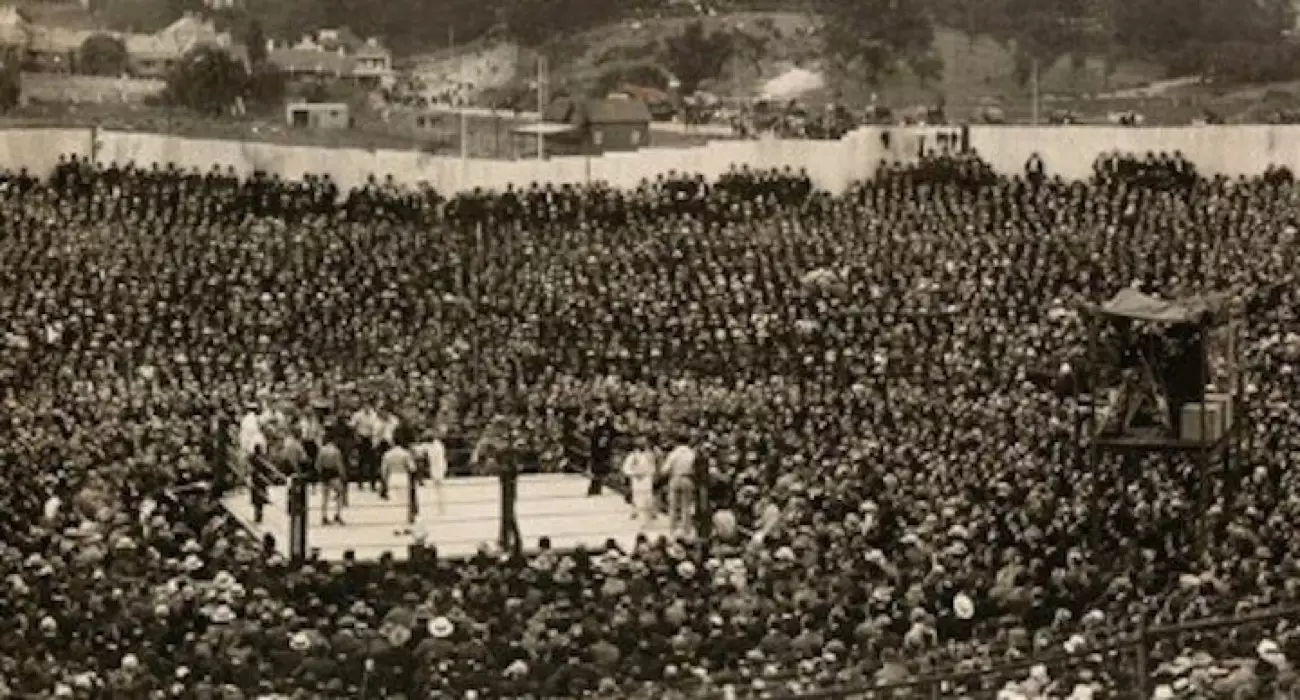In the landscape of boxing history, few names resonate as powerfully as John L. Sullivan. Known for his raw strength and fierce demeanor, Sullivan epitomized the quintessential fighter of the late 19th century. Born on October 15, 1858, in Boston, Massachusetts, he was a man who lived during a time when boxing was entering a new era, yet still held on to the brutal traditions of bare-knuckle fighting. John L. Sullivan, often referred to as “The Boston Strong Boy,” became a larger-than-life figure whose legacy is still debated among boxing enthusiasts today.
In Sullivan’s time, the sport of boxing was fraught with challenges and dangers that modern fighters rarely face. The absence of padded gloves meant that each punch could easily lead to life-altering injuries. The rules governing fights were also primitive, allowing rounds to continue until a fighter was knocked down. This unyielding environment fostered athletes of remarkable resilience and toughness. For Sullivan, the ring was both a battleground and a stage for his theatrics. His addiction to drinking and the flamboyance that came with it made him a celebrity, captivating audiences with captivating tales of his raucous life outside the ring as well as his ferocious prowess within it.
Sullivan’s most notable achievement is undoubtedly his epic battle against Jake Kilrain on July 8, 1889. As the last bare-knuckle championship fight in history, this event symbolized a crucial turning point in the sport. Set against the backdrop of scorching conditions in Richburg, Mississippi, where the temperature soared to 100 degrees Fahrenheit, the fight drew considerable attention. Despite the challenges of the weather and the nature of bare-knuckle boxing, approximately 3,000 fans flocked to the obscure location hoping to witness history.
Kilrain, also a formidable boxer, had been credited with claims to the championship title, primarily supported by the coverage of the era’s influential publications. His strategy revolved around outlasting Sullivan, banking on the notion that the legendary fighter’s notorious alcohol consumption would render him unable to maintain stamina over an extended period. The initial rounds of the fight saw Kilrain skillfully evade Sullivan’s powerful strikes, demonstrating agility and clever movement. Sullivan’s frustration culminated in blistering taunts directed at Kilrain, revealing the mounting tension in the ring.
As the fight progressed into its later rounds, the sheer brutality of the contest became evident. The raw energy demanded from both fighters led to a back-and-forth exchange steeped in tradition and pride. While Sullivan, known for his relentless power, aimed to intimidate Kilrain with each blow, Kilrain showcased his cunning boxing skills to evade a decisive defeat. Notably, Kilrain succeeded in drawing blood during the early stages, a rare moment that sparked renewed determination in Sullivan.
However, as the rounds advanced, it became clear that Kilrain’s endurance was waning. The heat and exertion took a toll on both fighters, yet Sullivan appeared to thrive in the unrelenting conditions. The match unforgivingly stretched into a test of physical and mental endurance, with Sullivan, against all odds, maintaining his tenacity and resilience as he consistently scored knockdowns. With each exchange, Sullivan’s reputation as a relentless warrior was cemented in boxing folklore.
The culmination of the fight came after an astonishing 75 rounds, with a doctor intervening to caution Kilrain’s corner against permitting their fighter to continue, declaring that his life was at risk. John L. Sullivan emerged victorious as the crowd erupted, cementing his status as a boxing icon. This match not only marked the end of the bare-knuckle boxing era but also underscored Sullivan’s indomitable spirit. His victory over Kilrain proved that tenacity and audacity mattered most in the face of impending danger.
Sullivan’s victory would eventually be overshadowed by the arrival of more regulated boxing formats. However, the echoes of his legendary bout with Kilrain resonate through boxing history, representing the last chapter of an age defined by raw brutality and fierce competition. John L. Sullivan left behind a legacy that would inspire generations of fighters that followed, embodying the essence of what it meant to be a champion.
John L. Sullivan passed away in 1918 at the age of 59, yet his influence remains a pivotal part of boxing history. The vivid stories of his life, paired with his contributions to the evolution of the sport, ensure that he will forever be remembered as one of boxing’s greatest fighters. His life and career serve as a testament to the changing dynamics of the sport and the resilience required to succeed in the unforgiving world of professional fighting. Indeed, Sullivan epitomized the relentless spirit of a true champion, fighting for glory in a way few have matched since.

